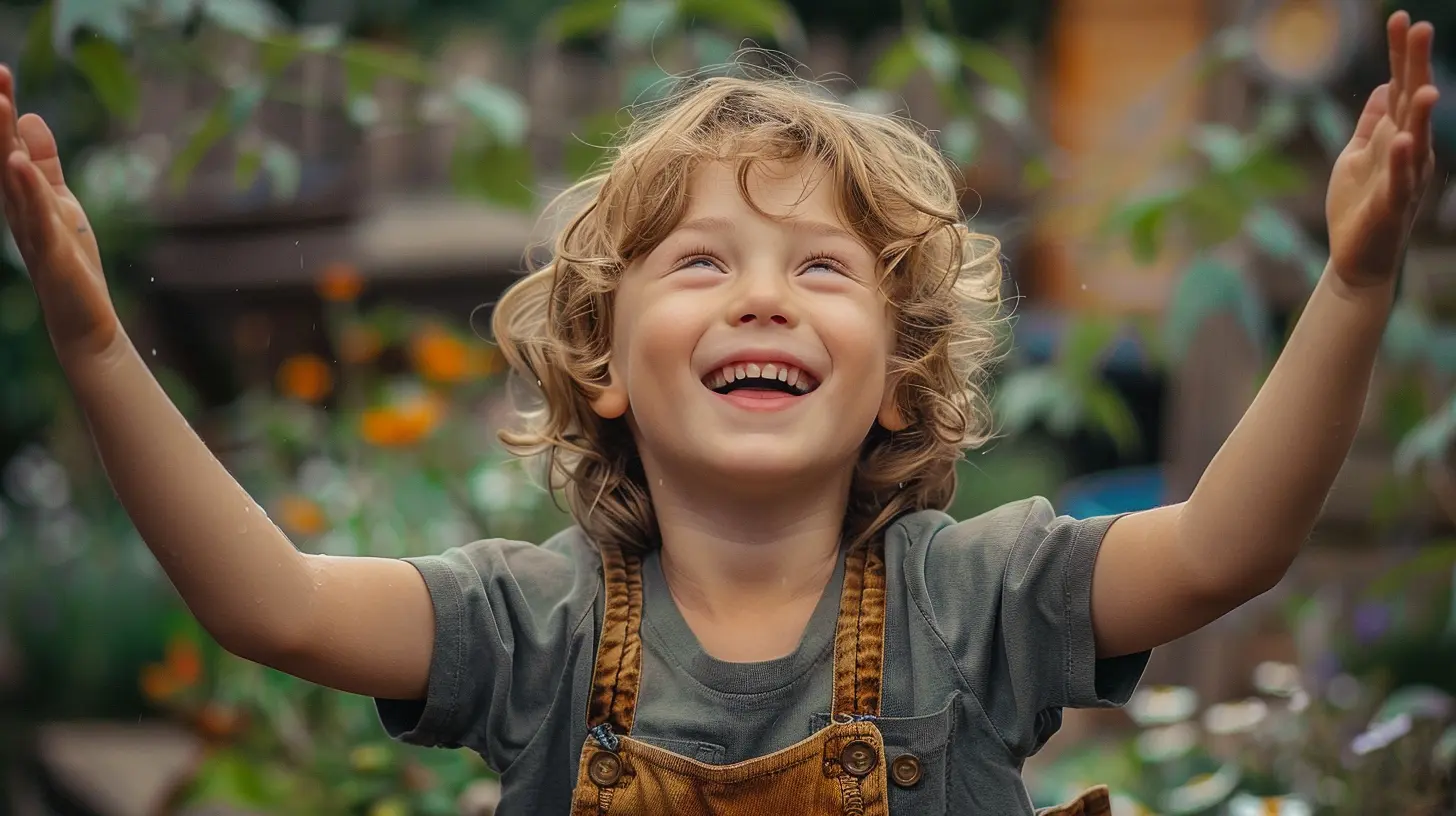Resilience and Gratitude: How the Two Work Together in Raising Strong Kids
4 October 2025
Parenting isn't for the faint of heart. It’s a rollercoaster of tantrums, giggles, scraped knees, and late-night cuddles. But at the end of the day, we all want the same thing: to raise strong, kind, and emotionally intelligent kids who can tackle whatever life throws at them.
Two of the most powerful gifts we can give our children are resilience and gratitude. Not only do these traits help them navigate challenges, but they also fuel each other in beautiful ways. A grateful child learns to see the silver lining, which in turn makes them more resilient. And a resilient child appreciates the lessons that hardships teach—leading to even more gratitude.
So, how can we cultivate both in our kids? Let’s dive in. 
What Is Resilience and Why Does It Matter?
Resilience is the ability to bounce back from setbacks. It’s what keeps a child from crumbling under pressure or giving up after failure.Think of it like a rubber band. The stronger it is, the more it stretches without snapping. And in today’s fast-paced, pressure-filled world, our kids need strong rubber bands more than ever.
Without resilience, small disappointments become crises. A bad grade, a lost soccer game, or a disagreement with a friend can feel like the end of the world. But a child who has resilience understands that setbacks are just stepping stones. They learn, adapt, and grow.
How Gratitude Strengthens Resilience
Here’s where gratitude comes in. When kids are taught to focus on what they have rather than what they lack, they develop a more positive outlook.Instead of dwelling on failure, they find something to appreciate in the experience. Instead of feeling entitled to success, they value the effort that leads to it.
A grateful mindset makes life's inevitable ups and downs easier to handle. After all, if a child can appreciate what they have, they’re less likely to wallow in what they don’t. 
How to Raise Resilient Kids
Raising resilient kids doesn’t mean shielding them from hardships. It means teaching them how to face challenges head-on. Here’s how you can do it:1. Let Them Fail (Yes, Really!)
It’s tough to watch your child struggle, but failure is one of the best teachers. When kids experience small failures—like losing a game, getting a bad grade, or struggling with a new skill—they learn that setbacks aren’t the end of the world.Resist the urge to swoop in and fix everything. Instead, offer support and encourage problem-solving. "What could you do differently next time?" is a much better question than "Let me handle this for you."
2. Teach Problem-Solving Skills
Resilience isn’t just about toughing it out—it’s about finding solutions. Encourage your kids to think critically and come up with their own ways to tackle problems. Whether it’s fixing a broken toy or dealing with a school issue, asking "What’s your plan?" helps them build confidence in their own abilities.3. Encourage a Growth Mindset
Kids who believe they can improve through effort are more likely to keep going when things get tough. Instead of saying "You’re so smart!" praise their effort: "I love how hard you worked on that!" This teaches them that success isn’t about talent—it’s about persistence.4. Be a Role Model
Hard truth: Kids do what we do—not what we say. If they see you crumble under pressure, they’ll think that’s normal. Show them how to bounce back by handling stress with grace, looking for silver linings, and practicing self-care.
How to Foster Gratitude in Kids
Gratitude doesn’t come naturally to kids—especially in a world where instant gratification is the norm. But with a little effort, you can help them develop the habit of appreciation.1. Make Gratitude a Daily Practice
Gratitude isn’t just about saying "thank you." It’s about being mindful of the good things in life. Try one of these simple habits:- Gratitude Journals: Have your child write (or draw) three things they’re grateful for each day.
- Dinner Table Gratitude: Go around the table and share something good that happened that day.
- Bedtime Reflection: Ask, "What was the best part of your day?" before tucking them in.
2. Teach Perspective
Kids tend to focus on what they don’t have. They see a friend with a cooler bike or a fancier toy and suddenly, their own stuff doesn’t seem so great.Help them shift their perspective with questions like:
- "What do you love about your bike?"
- "How would you feel if you didn’t have toys at all?"
These questions help kids realize how much they already have.
3. Encourage Giving Back
When kids help others, they see firsthand how fortunate they are. Volunteer as a family, donate toys, or simply encourage small acts of kindness like writing thank-you notes or helping a neighbor. Contribution fosters gratitude.4. Show Your Own Gratitude
Again, kids mirror what they see. If they hear you complaining all the time, they’ll adopt the same mindset. But if you’re regularly saying things like, "I’m so grateful for this delicious meal" or "I appreciate you helping me clean up", gratitude will become second nature to them.
How Resilience and Gratitude Work Together
By now, you can probably see how resilience and gratitude are deeply connected.- Gratitude shifts focus from problems to possibilities. When kids appreciate what they have, they’re less likely to dwell on what’s missing.
- Resilience helps kids see setbacks as opportunities. When they bounce back from failure, they recognize the lessons in hardships.
- Together, they create emotionally strong kids. A child who is both resilient and grateful is more likely to be confident, positive, and capable of handling life’s challenges.
Think of gratitude as the roots that keep your child grounded and resilience as the branches that help them grow strong. One without the other creates imbalance. But together? They form a sturdy, unshakable foundation.
Final Thoughts
Raising strong kids isn’t about making their lives easy—it’s about giving them the tools to handle adversity and appreciate the good.By fostering resilience, you teach them to rise after every fall. By promoting gratitude, you help them find joy even in difficult moments. And when both work hand in hand, you’re raising kids who can take on the world—no matter what comes their way.
So, start today. Let them fail. Teach them problem-solving skills. Make gratitude a family practice. And most importantly, model these traits yourself. Because at the end of the day, the best way to raise strong kids is to be the kind of person you want them to become.
all images in this post were generated using AI tools
Category:
Teaching GratitudeAuthor:

Max Shaffer
Discussion
rate this article
1 comments
Wesley McKinstry
Raising resilient kids is like training for a marathon—lots of stumbling and sweating involved! Just sprinkle in some gratitude, and you’ve got yourself a mini superhero. Remember, a positive attitude and a well-timed snack can save the day! 🍏🏃♀️
October 5, 2025 at 4:47 AM

Max Shaffer
Absolutely! Just like marathon training, fostering resilience in kids involves persistence and effort, with gratitude serving as the powerful fuel that sustains their journey.


